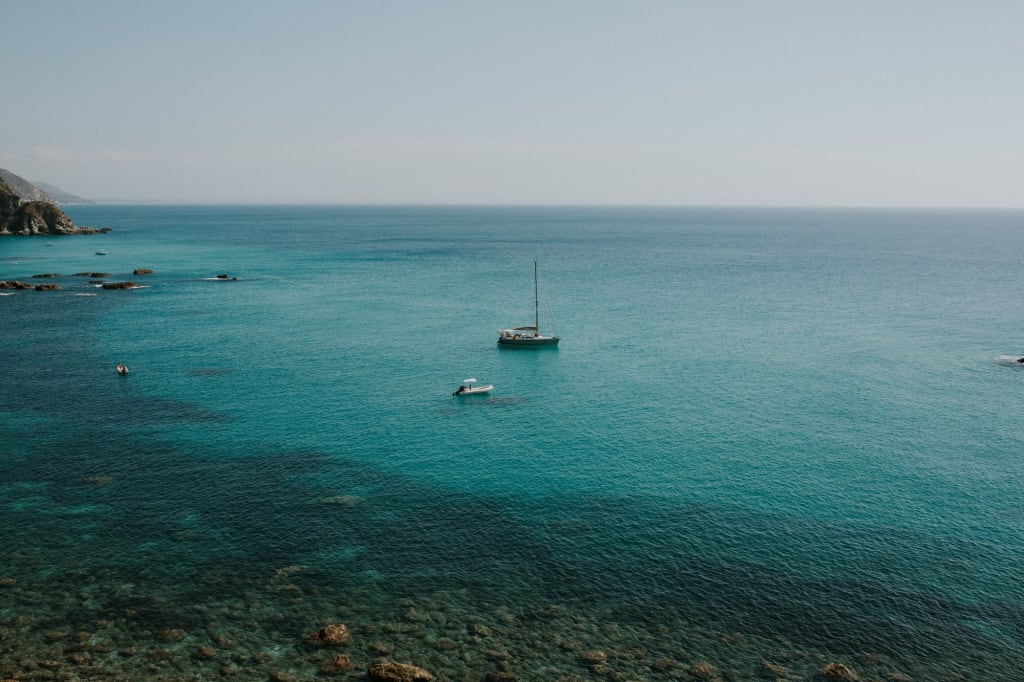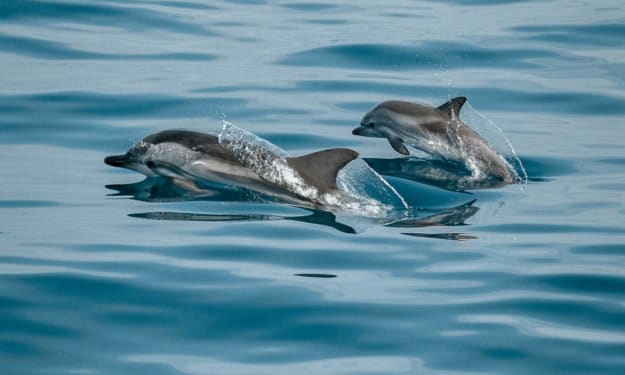Oceans Of The World - The Indian Ocean
An Ocean Rich in History, Ecology, and Geopolitical Importance

The Indian Ocean, stretching over an area of approximately 70.56 million square kilometers, is the third-largest ocean in the world. Bounded by Africa to the west, Asia to the north, Australia to the east, and the Southern Ocean to the south, it is a region of profound historical significance, ecological diversity, and modern geopolitical importance. This vast expanse of water has been a cradle of ancient civilizations, a conduit for trade and cultural exchange, and a stage for contemporary strategic maneuvers.
Historical Significance
Ancient Trade Routes and Civilizations
The Indian Ocean has been a pivotal maritime route for millennia. Ancient civilizations, including those of Mesopotamia, the Indus Valley, and Egypt, engaged in extensive trade across these waters. The monsoon winds, which blow predictably across the ocean, facilitated the movement of goods, people, and ideas. These winds allowed ancient mariners to navigate with remarkable accuracy, connecting distant lands and cultures.
The trade networks established across the Indian Ocean were vital for the exchange of spices, textiles, precious stones, and other commodities. Cities like Calicut (Kozhikode) in India, Zanzibar in Tanzania, and Malacca in Malaysia became thriving trade hubs. The Indian Ocean's waters were plied by dhows, junks, and later, European ships, each contributing to the rich tapestry of maritime history.
Cultural and Religious Exchange
The Indian Ocean was not only a commercial conduit but also a cultural and religious highway. Buddhism spread from India to Southeast Asia and Sri Lanka via these waters. Similarly, Islam made its way to the coastal regions of East Africa, the Maldives, Indonesia, and Malaysia, leaving a lasting religious and cultural legacy. The blending of cultures along the Indian Ocean rim has created unique and diverse societies, evident in the architecture, languages, and customs of the region.
Ecological Diversity
Marine Life and Biodiversity
The Indian Ocean is home to a rich array of marine life and ecosystems. Coral reefs, mangroves, and seagrass beds are just a few of the critical habitats found in these waters. The Maldives, Seychelles, and Australia’s Great Barrier Reef are renowned for their vibrant coral ecosystems, which support a vast diversity of marine species.
The ocean is a haven for numerous marine creatures, including the majestic blue whale, the elusive dugong, and the iconic clownfish. The coral reefs and mangroves provide essential breeding and feeding grounds for fish, crustaceans, and mollusks. However, these ecosystems are under threat from climate change, overfishing, and pollution, necessitating urgent conservation efforts.
Climatic Influence
The Indian Ocean plays a crucial role in global climate systems. The monsoon winds, which bring seasonal rains to South Asia, are driven by the temperature differential between the ocean and the Asian landmass. The Indian Ocean Dipole (IOD) is another significant climatic phenomenon, influencing weather patterns in countries bordering the ocean. The IOD affects rainfall, cyclonic activity, and even agricultural productivity, making it a critical factor in the region's climate dynamics.
Geopolitical Importance
Strategic Maritime Routes
In modern times, the Indian Ocean has become a strategic chessboard for global powers. Its vital sea lanes facilitate a significant portion of the world's maritime trade. The Strait of Malacca, the Bab el-Mandeb Strait, and the Strait of Hormuz are key chokepoints through which much of the global oil supply passes. Control over these routes is of paramount importance for energy security and global trade.
Regional Conflicts and Cooperation
The Indian Ocean region is also marked by regional conflicts and cooperation. Nations like India, China, the United States, and Japan have a vested interest in maintaining the security and stability of these waters. The presence of naval bases, military exercises, and strategic alliances reflects the geopolitical significance of the Indian Ocean.
The Indian Ocean Rim Association (IORA) is a multilateral organization that seeks to enhance regional cooperation and sustainable development. Initiatives under IORA aim to address maritime security, trade and investment facilitation, and disaster risk management. Such efforts are crucial in fostering a stable and prosperous Indian Ocean region.
Economic Significance
Fisheries and Marine Resources
The Indian Ocean is a critical source of livelihood for millions of people living along its coasts. Fisheries provide food security and employment for communities in countries like India, Indonesia, and Somalia. The ocean's rich marine resources, including fish, crustaceans, and mollusks, support commercial and subsistence fishing activities.
However, overfishing and illegal, unreported, and unregulated (IUU) fishing pose significant challenges. Sustainable management of marine resources is essential to ensure the long-term viability of fisheries and the protection of marine biodiversity.
Tourism and Economic Development
Tourism is another vital economic driver in the Indian Ocean region. The pristine beaches, coral reefs, and unique cultural heritage of island nations like the Maldives, Mauritius, and Seychelles attract millions of tourists each year. Tourism not only generates revenue but also promotes cultural exchange and environmental awareness.
Coastal development, however, must balance economic growth with environmental conservation. The construction of resorts, ports, and other infrastructure can have detrimental effects on fragile ecosystems if not managed sustainably.
Environmental Challenges
Climate Change and Rising Sea Levels
The Indian Ocean is at the forefront of the global climate crisis. Rising sea levels, driven by the melting of polar ice caps and thermal expansion, threaten low-lying coastal areas and island nations. Countries like Bangladesh and the Maldives are particularly vulnerable, facing the risk of coastal erosion, saltwater intrusion, and displacement of communities.
Climate change also exacerbates the frequency and intensity of cyclones, leading to devastating impacts on coastal communities. Effective adaptation and mitigation strategies are essential to address the multifaceted challenges posed by climate change in the Indian Ocean region.
Pollution and Marine Debris
Marine pollution is a growing concern in the Indian Ocean. Plastic waste, oil spills, and chemical pollutants degrade marine habitats and harm wildlife. The accumulation of plastic debris in the ocean has far-reaching consequences for marine ecosystems and human health. Collaborative efforts at the regional and global levels are necessary to combat marine pollution and promote sustainable waste management practices.
Conclusion
The Indian Ocean is a region of immense historical, ecological, and geopolitical significance. Its waters have witnessed the rise and fall of civilizations, the exchange of goods and ideas, and the interplay of global powers. The ocean's rich biodiversity and vital marine resources sustain millions of people, while its strategic maritime routes underpin global trade.
However, the Indian Ocean also faces numerous challenges, from climate change and environmental degradation to regional conflicts and geopolitical rivalries. Addressing these issues requires a concerted effort from all stakeholders, including governments, international organizations, and local communities.
As we navigate the complexities of the 21st century, the Indian Ocean remains a vital and dynamic component of our interconnected world. By fostering cooperation, promoting sustainable development, and safeguarding its unique ecosystems, we can ensure that the Indian Ocean continues to be a source of life, prosperity, and inspiration for generations to come.
About the Creator
SaurabhK
I am a versatile writer passionate about crafting gripping crime fiction and insightful real crime articles. 🕵️♂️📖 I also explore culinary delights, uncovering flavorful experiences that celebrate the artistry of chefs. 🍽️🍷
Enjoyed the story? Support the Creator.
Subscribe for free to receive all their stories in your feed. You could also pledge your support or give them a one-off tip, letting them know you appreciate their work.






Comments (1)
Nicely done about my ocean.